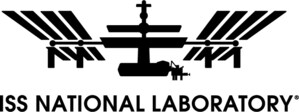
3D Bioprinter to Print Human Meniscus on the ISS
KENNEDY SPACE CENTER, Fla., March 9, 2023 /PRNewswire/ -- The knee is not only one of the largest and most complex joints in the body—it is also easily injured. In fact, one of the most common orthopedic injuries is the tearing of the meniscus, a half-moon-shaped piece of cartilage in the knee. Each knee has two menisci that allow the joint to move freely. Current treatments for a torn meniscus are less than ideal, involving removing or repairing the torn segment, which can ultimately lead to increased risk of arthritis or knee replacement, as the affected joint loses its cushioning. To improve patient care on Earth and develop more effective ways of treating torn tissues, researchers from Redwire Space are turning to the microgravity environment of the International Space Station (ISS) National Laboratory.
Redwire's upgraded BioFabrication Facility (or BFF) launched to the space station in November. Now that the BFF is installed, it is ready to flex its printing muscles with the facility's first task: producing a full-sized, 3D printed human meniscus. Using supplies that are launching on SpaceX's upcoming 27th Commercial Resupply Services (CRS) mission, the meniscus tissue will be printed on station and then returned to Earth for analysis. Terrestrially, printing soft tissues is challenging due to gravity's influence, which is why Redwire is taking its bioprinter to space.
"The BFF is a game-changing technology that could have significant implications for the future of human health and patient care on Earth," said Rich Boling, a Redwire vice president. "Printed tissues could not only be implanted in patients but also used as models for drug discovery, providing new avenues to test therapeutics."
The investigation to print a full human meniscus will build on previous research from 2019, when the BFF printed cardiac tissue and a partial meniscus. This next iteration will utilize an upgraded BFF that allows greater temperature control when printing as well as an upgraded imaging system that lets the team better control the prints.
According to Boling, the meniscus is the perfect tissue to start with not only because many people have knee injuries but also because it is a good tissue to test the BFF. "The meniscus is great because it's very avascular, meaning it lacks blood vessels, which is what tends to hold back large-scale 3D printing," he said. "So right when you print it, you're already closer to human tissue than you would be if you started out trying to print a heart."
Boling says that gives the company an opportunity to continuously improve the printing system, which will help Redwire meet its ultimate goal of printing entire organs in space. While that milestone is likely many years away, in the near-term, BFF could be a valuable tool for drug efficacy testing. The facility can be used to print and culture organoids, which resemble human organs but are artificially made. These organoids can be used to test new drug compounds, allowing researchers to collect meaningful data that can aid in disease modeling and drug development as well as the advancement of tissue engineering.
SpaceX CRS-27 is targeted for launch no earlier than March 14 at 8:30p.m. EDT. This mission will include more than 15 ISS National Lab-sponsored payloads. To learn more about all ISS National Lab-sponsored research on this mission, please visit our launch page.
To download a high-resolution photo for this release, click here.
About the International Space Station (ISS) National Laboratory:
The International Space Station (ISS) is a one-of-a-kind laboratory that enables research and technology development not possible on Earth. As a public service enterprise, the ISS National Lab allows researchers to leverage this multiuser facility to improve life on Earth, mature space-based business models, advance science literacy in the future workforce, and expand a sustainable and scalable market in low Earth orbit. Through this orbiting national laboratory, research resources on the ISS are available to support non-NASA science, technology and education initiatives from U.S. government agencies, academic institutions, and the private sector. The Center for the Advancement of Science in Space (CASIS) manages the ISS National Lab, under Cooperative Agreement with NASA, facilitating access to its permanent microgravity research environment, a powerful vantage point in low Earth orbit, and the extreme and varied conditions of space. To learn more about the ISS National Lab, visit www.ISSNationalLab.org.
Media Contact:
Patrick O'Neill
904-806-0035
[email protected]
SOURCE International Space Station National Lab







Share this article